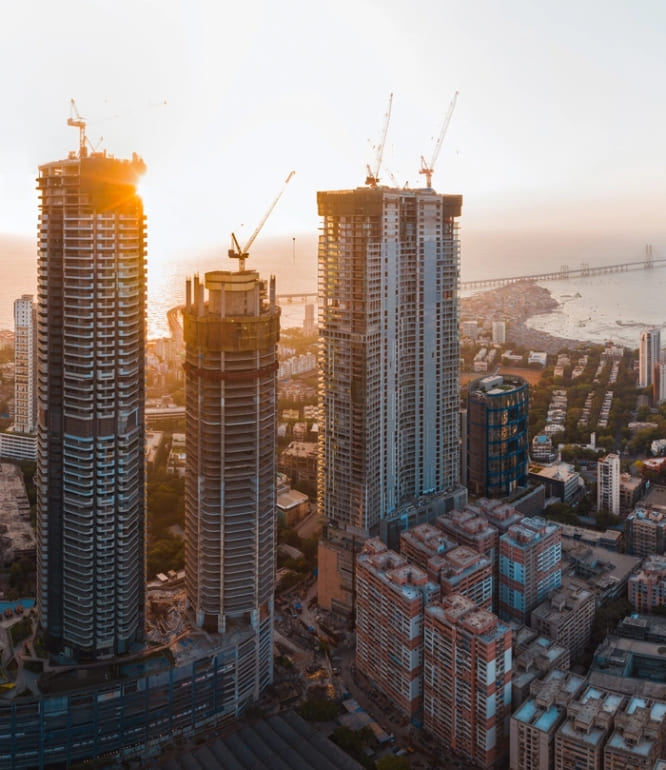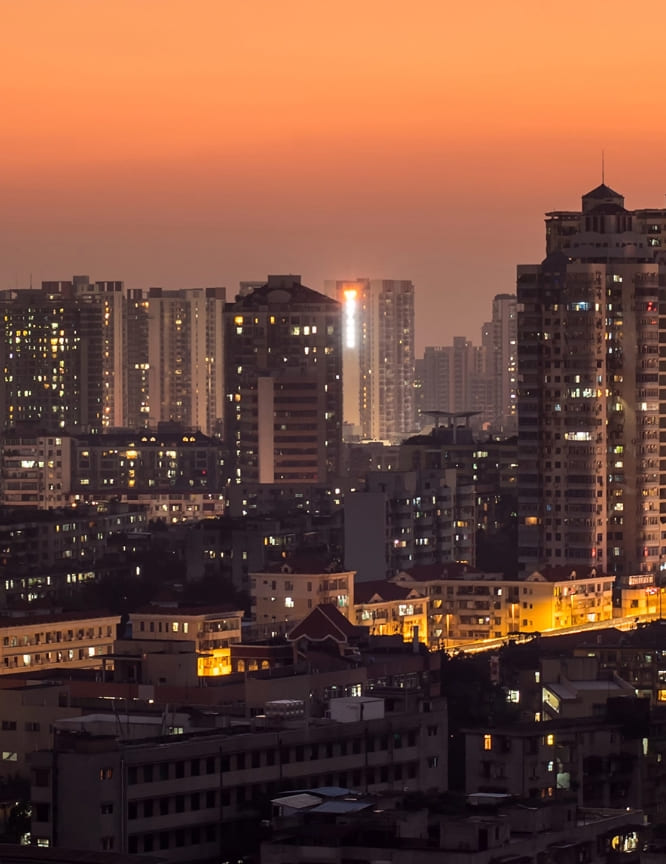Why invest in India?
Introduction
The Indian real estate sector is one of the most globally recognized sectors which is well complemented by the growth in the corporate environment and the demand for office space as well as urban and semi-urban accommodation. The construction industry ranks third in the world among the other 14 major sectors in terms of direct, indirect and induced effects in all sectors of the economy.
Market size
Real estate sector in India is expected to reach US$ 1 trillion in market size by 2030, up from US$ 200 billion in 2021 and contribute 13% to the country’s GDP by 2025. Retail, hospitality, and commercial real estate are also growing significantly as the demand is increasing for customised residential living.
Investments
The Indian real estate sector has witnessed high growth in recent times with rise in demand for office as well as residential spaces. According to Colliers India, institutional investments in the Indian real estate sector are expected to increase by 4% to reach Rs. 36,500 crore (US$ 5 billion) in 2021, driven by rising interest of investors towards capturing attractive valuations amid the pandemic.


Why invest in Mumbai?
Financial capital
There is no doubt that Mumbai, the economic capital of India, is a dream space for many aspiring homeowners. After all, the city and the suburbs have a lot of variety to offer, from lush bungalows to premium apartments. But did you know Mumbai’s realty scene is equally profitable for long-term investment purposes?
Why, yes! In terms of infrastructure, Mumbai has had a proven record of crucial developments, being the financial capital of the country. Infrastructure proposals such as the Eastern Freeway and the Chembur to Wadala Monorail have made Mumbai a lucrative city to invest in. This has also given rise to the demands for flats in Mumbai, specifically pertaining to such areas to cater to this, Supreme Universal is developing a Premium land parcel in Chembur suburb of Mumbai. The company is planning to develop an extravagant gated community project on the land parcel that has a replenishing development potential.
Commercial Hub
Mumbai scores highest on strong economics, lower crime and pollution readings; it remains India’s most expensive city in terms of real estate. The city is an economic powerhouse, industrial hub, and also the whole and sole of Bollywood, arguably India’s dominant film industry. From the banking and financial sector to the gem and jewellery industry, and from the automobile and IT industries, Mumbai has several important economic drivers.
Why invest in Pune?
Infrastructure
The major growth drivers for the Pune city have been the upcoming metro line, increased intra-city connectivity, well-planned growth of the road network, and the planned airport which boosted the development in peripheral locations in and around the city. While many other cities are still trying to cope with the recent loss faced due to the pandemic, Pune’s market displayed resilience. Today, the residential development in and around the city proves to be the backbone of key infrastructure projects like the Pune metro, the released plans for approximately 50 township schemes along the 128-kilometer stretch and the Mahalunge-Mann Hi Tech city, which seems to be developing at a rapid pace.
Infographics
Against 46,080 in 2021, a total of 84,200 units/projects of real estate were completed in the city in 2022, the latest survey by property consultant Anarock claims.Pune’s real estate sector saw an influx of $194 million in private equity investments during 2022. According to Savills India, the overall portfolio of institutional investors in Pune’s real estate market is expected to almost double by 2027. In addition to offices, about 29 million sq ft. of assets owned by institutional investors are spread across retail, hospitality, and industrial & warehousing sectors.

FAQ’s
- A pan card (Permanent account number)
- OCI/PIO card (if applicable)
- A passport (In case of NRI)
- Passport-sized photos
- Address verification
Since there is no limit to the number of properties that may be purchased, NRIs can invest in as many residential properties and commercial properties in India as they like and receive rental income from them.
These investments provide substantial returns on a small initial commitment.
There is also the benefit of seeking tax deductions on income earned from property investments in India.
